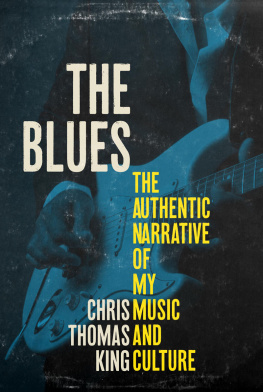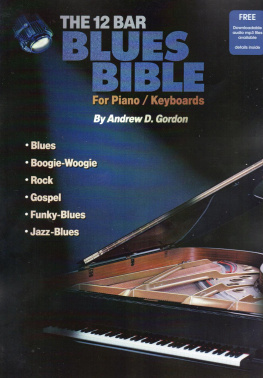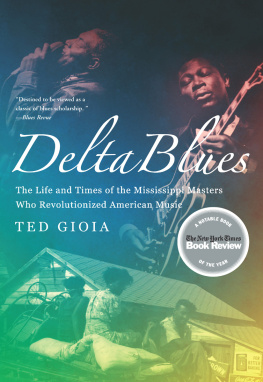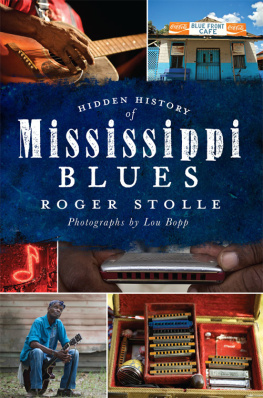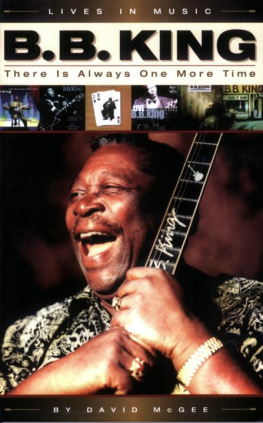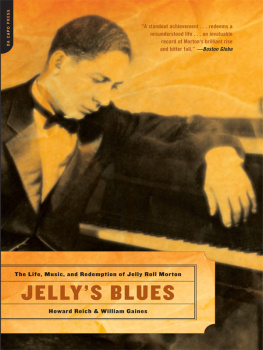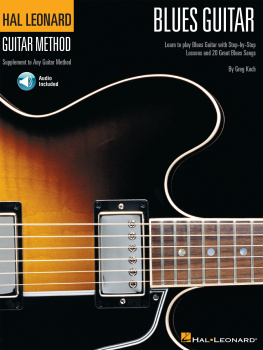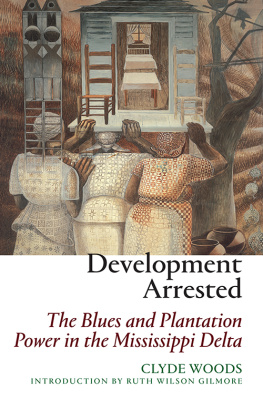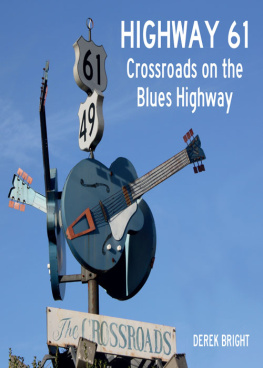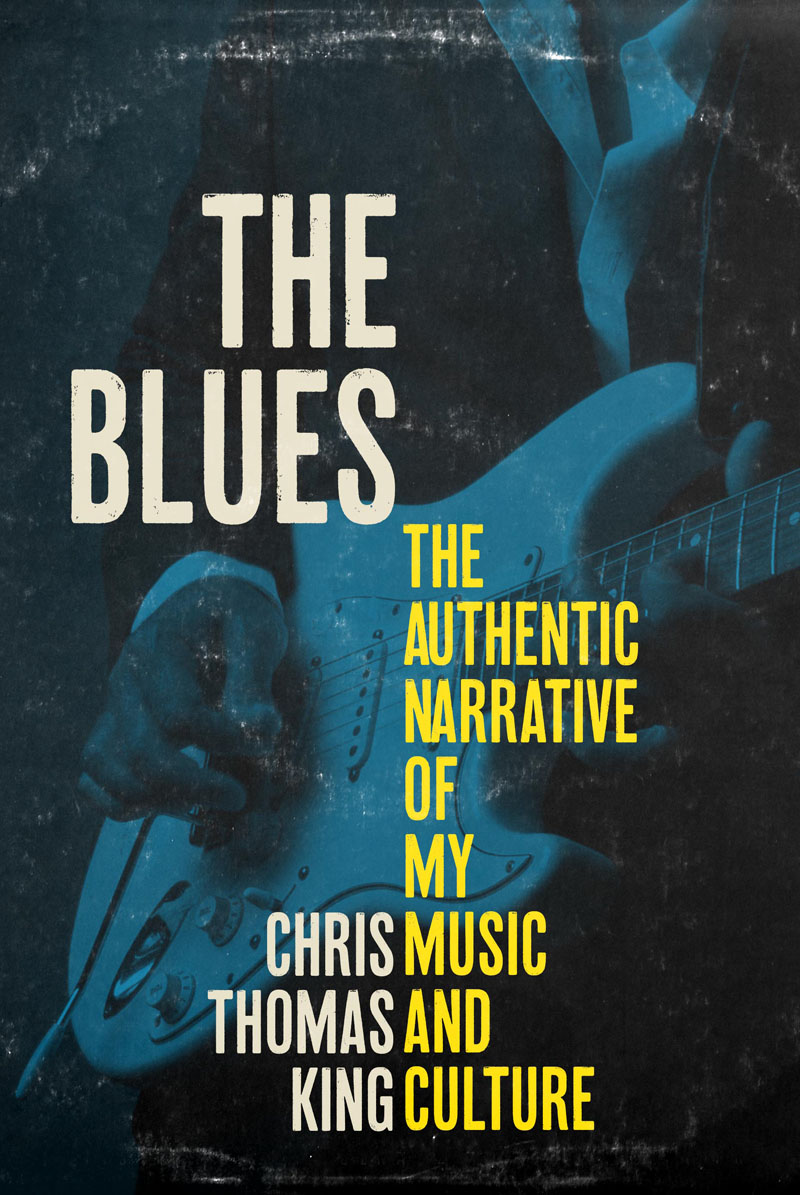
C HRIS THOMAS KING came of age immersed in the music and culture of the blues on the Louisiana Bayou. His late father, Tabby Thomas, was a working blues musician and juke joint owner-operator. Kings enlightening narrative reveals tragedy and heroism as he struggles to preserve the authentic historical memory of his music and culture.
All prior histories on the blues have alleged it originated on plantations in the Mississippi Delta. The Blues is the authentic counternarrative, revealing how and why this music has been misappropriated and its history whitewashedand how and why Black people have been removed as gatekeepers and participants on stage and off and in the boardrooms. King not only diagnoses the problem but also provides a remedy: a reformation based on facts, not White myths.
This book is the first to argue the blues began as a cosmopolitan art form, not a rural one. In New Orleans as early as 1900, the sound of the blues was ubiquitous. The Mississippi Delta, meanwhile, was an unpopulated sportsmans paradisethe frontier was still in the process of being cleared and drained for cultivation. Protestant states such as Mississippi and Alabama could not have incubated the blues. New Orleans was the only place in the Deep South in the early twentieth century where the sacred and profane could party together without fear of persecution.
Expecting these findings to be controversial in some circles, King has buttressed his conclusions with primary sources and years of extensive research, including a sojourn to West Africa and interviews with surviving folklorists and blues researchers from the 1960s folk-rediscovery epoch. They say the blues is blasphemous, the devils musicKing says theyre unenlightened. Blues music is about personal freedom.
Copyright 2021 by Chris Thomas King
All rights reserved
First edition
Published by Chicago Review Press Incorporated
814 North Franklin Street
Chicago, Illinois 60610
ISBN 978-1-64160-444-4
Library of Congress Control Number: 2021933190
Interior design: Jonathan Hahn
Printed in the United States of America
5 4 3 2 1
To my son, Dylan
CONTENTS



AUTHORS NOTE
M Y MUSIC , THE BLUES , is the most influential and revolutionary music in the pantheon of Western culture. Yet those who originally introduced the blues to the world have been marginalized and exploited; recast as persons one should fear, loathe, or pity, with few exceptions. The blues was usurped the instant it could be monetized by the dominant culture. I decry their narrative of my music and culture therewith as subterfuge.
In 1928, Abbe Niles, a White cultural tastemaker of Negro music and the ghostwriter of W. C. Handys 1941 biography, said, In general, writers and speakers on [blues], friendly and unfriendly, dont know their subject, and the people who know it best, cant write. Well, it is time the world read a narrative from someone who, as Abbe Niles said, know it best, and dare I say, with great humility, can read and write.
My purpose for writing a Reformation of the blues, or bleus, is not to narrowly define it, but to broaden its understanding; to provide the greater context it has been denied since its conception. I will analyze and deconstruct popularly held beliefs about the blues place of origin, its definition, indigenous meaning, and its cultural influences.
PROLOGUE
I N THE SUMMER OF 1999, a new millennium loomed. Tabbys Blues Box and Heritage Hall, my dads famous ramshackle juke jointwhich many deemed an immoral antediluvian relicwas targeted for demolition to make way for a road-widening project. Rumors predicting the demise of Tabbys Blues Box, one of the last real juke joints in America, had been commonplace since it opened in 1979. Yet, those rumors had always been greatly exaggerateduntil now. Gentrification was knocking at the door. The proverbial fat lady was approaching the beer-scented microphone. The citys bulldozers were out front revving their engines. The obit of the Blues Box was written on the bathroom walls. Indeed, the time had come for the alleged Devils Music Hall to face the executioner. Superstitious villagers, pitchforks in hand, gathered to witness its last rites read aloud. In hushed moral condemnation, they gawked, as the hangman readied his noose.

That summer, city officials went public with their devised plan to ease downtown traffic by razing Tabbys Blues Box and Heritage Hall. They proposed a bill to build an overpass over a nearby railroad track that would arch directly over my fathers juke joint. In case theres a train derailment, people would have another way out of downtown, said Fred Raiford, the public works director, to a reporter for the Advocate.
There hadnt been a train derailment in the area since the Blues Box opened twenty years ago. Many people in the Black community could not understand why the overpass required the loss of a major landmark and historical attractiona loss that would further devastate the frail neighborhood.
We cannot always put infrastructure improvements on the people who can least afford the improvements, said Cedric B. Glover, a state representative from the community, expressing his dissatisfaction with the plan on the evening news. If the burden is placed on Rose and Thomas cafa Black-owned mom-and-pop soul food joint next doorand Tabbys Blues Box, we havent gained as much as we think, he said into the camera.
Baton Rouge voters, after much consternation, approved a tax to pay for the road project. The road widening of North Boulevard, which many deemed an ominous harbinger of gentrification, was set to level every building remaining on the once burgeoning Negro thoroughfare, the conspicuous exception being the Masonic Temple Theater across the street. The project would cost about seven million dollars.
The developments main concern was the Kansas City Southern Railroad Line a block away from Tabbys Blues Box. The construction would also widen North Boulevard between North Tenth and North Nineteenth Streets into four lanes. The bridge would run above the Griffon building, built in the 1920s, which housed both Tabbys Blues Box and Rose and Thomas Caf. Everyone understood that if the city bulldozed North Boulevard, supposedly to ease future traffic, the historic Black business district would be no more.
My family, along with other North Boulevard proprietors, received a letter from the director of the Department of Public Works. We were invited to a Metro Council meeting on the third floor of a governmental building at 222 St. Louis Street the following Tuesday, July 28.
When I arrived at the adjudication hearing with my father, every seat in the sweltering room was taken. The assembly was boisterous, the tension thick. The attendees were split down the middle. Some wanted to preserve our juke joint and the character of the neighborhood. Others urged demolition, demanding the officials plans move forward.
When it was my turn to speak from the podium, using notes Id prepared the night before, I talked about Tabbys contributions to the citys culture and economy. I argued that our juke joint had been undervalued. I had recently performed in Washington, DC, on a bill with Clarence Gatemouth Brown. In my hotel, Id noticed a tourism ad for Baton Rouge. The ad featured a picture of a crawfish, a floating casino, and a picture of Tabbys Blues Box, Home of the blues. I couldnt understand why our hall couldnt be interwoven into the citys plans for the future. I urged they consider the iconic juke joint as a potential key attraction in a redeveloped downtown.
Next page
